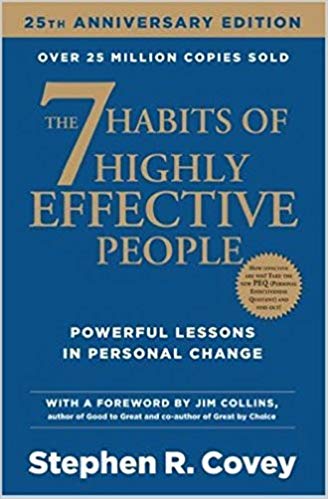

This article is an excerpt from the Shortform summary of "The 7 Habits of Highly Effective People" by Stephen Covey. Shortform has the world's best summaries of books you should be reading.
Like this article? Sign up for a free trial here .
In order to use your independent will to effectively achieve mission statement and ultimate goals, you need the proper tools of time management. Over time, four generations of time management techniques have emerged.
Stephen Covey’s time management system discusses the four generations of time management. The Fourth Generation is what effective people typically use, and what you should aim for on your 7 Habits journey. Working toward the fourth generation will help you shift your paradigm, prioritize what’s important to you, and ultimately achieve your goals.
Four Stephen Covey Time Management Methods, and Why Fourth Generation is Effective
There are four main methods of Stephen Covey’s time management. You should aim to achieve the fourth generation of time management as a part of your 7 Habits journey. First, it’s important to recognize your current time management habits to see where and how you can improve. As you read through, think about which generation you tend to practice, and how you can shift to fourth generation.
First Generation: Notes and Checklists
The first iteration that led to Stephen Covey’s time management tools focuses on gathering all the varied tasks and to-dos into checklists and Post-It notes. The main weakness of notes and checklists is that by lumping everything onto the same list, you’re not prioritizing tasks or assessing how (or whether) they contribute to your values and goals.
The first-generation paradigm causes you to react to any task or demand that external forces throw in front of you. This is the easiest approach because you simply take things as they come — just add it to the list! — but your effort produces few substantive results and doesn’t empower you to create your own path. Furthermore, if you feel that all you can do is react to external forces, then you don’t feel responsible for the results.
People who use first-generation time management tend to feel little control and self-esteem, and are typically seen as irresponsible and undependable.
Second Generation: Calendars and Planners
The second generation of Stephen Covey’s time management takes things a step further by taking all the to-dos on your checklists and organizing them into a schedule. People who follow the second-generation method are schedule oriented and show up to commitments when they’re supposed to, so they appear more responsible than first-generation time managers.
However, calendars and planners still have no process for weighting different activities based on how they contribute to priorities and goals, so this approach produces few important results.
Third Generation: Goal Setting and Daily Planning
The third generation builds on the second generation’s scheduling techniques by adding prioritization through clarifying your values and setting long- and short-term goals. With this method, you assess your to-dos, determine how each one fits into your goals and values, and schedule them accordingly.
Additionally, the third-generation of Stephen Covey’s time management incorporates daily planning to schedule the most important asks into each day. But planning in the narrow parameters of a single day keeps the focus on urgent tasks, not all of which are important (we’ll talk more about balancing urgency and importance in the next section).
Daily planning also easily lends itself to over-scheduling, which is often frustrating and unrealistic; say you schedule your day practically down to the minute, including a 15-minute phone call with an old friend, but when you start talking to your friend, you discover she’s been dealing with some tragic news and you can’t possibly cut her off after 15 minutes simply to keep to your schedule.
Goal setting and daily planning fail to allow enough flexibility in your highly scheduled day to respond to unexpected events and opportunities that contribute to your principles and goals. In particular, opportunities to build relationships and have spontaneous experiences — both of which add to quality of life — tend to suffer in this efficiency-first, time-controlled model. This rigidity can be enough to turn people away from the third generation and back to the first or second generation tools. Stephen Covey’s time management generations are meant to help you understand how you organize and help you see clearly where you can make changes.
Fourth Generation: Self Management, Not Time Management
Whereas the third generation strictly manages time, the fourth generation is about managing yourself so that you can actively decide which tasks will have the most value in your life and adjust accordingly as things come up. The fourth-generation approach involves planning on a weekly basis rather than a daily schedule, which gives you a broader lens and better context to schedule your priorities instead of prioritizing your schedule.
Stephen Covey’s time management method is meant to allow you flexibility in your organization and plans. The flexibility built into the fourth-generation method empowers you to mold your time to fit your values, while also helping create more realistic expectations of your time; as you accomplish those tasks that move you toward your goals, your satisfaction with yourself and your life will increase. Effective people use the fourth-generation approach, keeping their focus on the activities that keep them on the path to realizing their personal mission statement.
Working toward a fourth generation of Stephen Covey’s time management methods will allow you to develop a quadrant II paradigm, where you can focus on things in your life that are important. Using a fourth generation time management matrix will open up possibilities and help you manage your self and your time while remaining flexible.
———End of Preview———

Like what you just read? Read the rest of the world's best summary of "The 7 Habits of Highly Effective People" at Shortform . Learn the book's critical concepts in 20 minutes or less .
Here's what you'll find in our full The 7 Habits of Highly Effective People summary :
- How to prioritize the hundred tasks you have to focus on the one or two that really matter
- The right way to resolve every disagreement and argument
- How to avoid burning out and succeed over 20+ years






